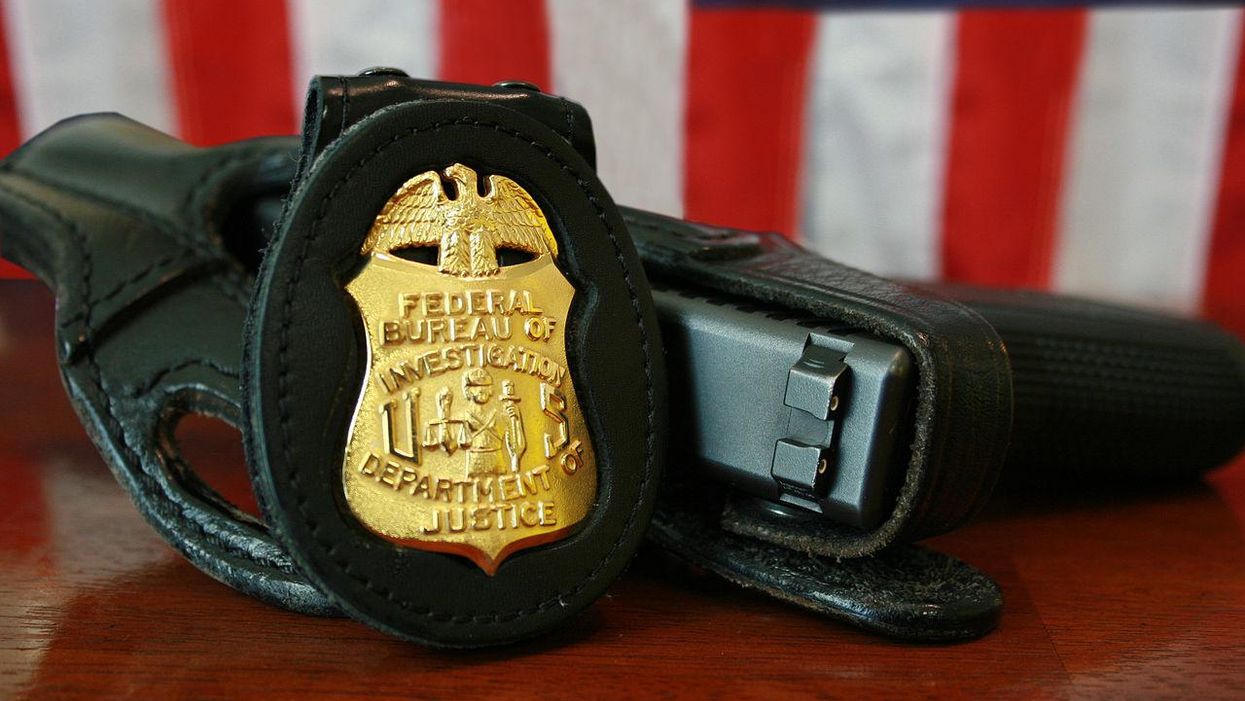The FBI has rejected a spyware program used to crack smartphones -- here's why

An FBI badge and gun in 2014, Wikimedia Commons
January 28, 2022 | 08:01AM ETFrontpage news and politics
Pegasus is a type of spyware that was developed by an Israeli company, the NSO Group, and has the ability to crack smartphone communications on the Android and iPhone platforms. According to New York Times reporter Michael Levenson, the FBI considered using Pegasus in the United States but decided against it. And NSO, according to Levenson, now finds itself “blacklisted” by the Biden Administration because of civil liberties concerns.
“The FBI, in a deal never previously reported, bought the spyware in 2019, despite multiple reports that it had been used against activists and political opponents in other countries,” Levenson reports in an article published on January 28. “It also spent two years discussing whether to deploy a newer product, called Phantom, inside the United States. The discussions at the Justice Department and the FBI continued until last summer, when the FBI ultimately decided not to use NSO weapons.”
Levenson continues, “But Pegasus equipment is still in a New Jersey building used by the FBI. And the company also gave the agency a demonstration of Phantom, which could hack American phone numbers.”
Levenson notes that Pegasus “has been able to track terrorists and drug cartels” and “has also been used against human rights activists, journalists and dissidents. The FBI, according to Levenson, “bought and tested NSO software for years with plans to use it for domestic surveillance until the agency finally decided last year not to deploy the tools.”
On November 3, 2021, the Times reported that the Biden Administration had “blacklisted” NSO because its technology had “been used by foreign governments to ‘maliciously target’ the phones of dissidents, human rights activists, journalists and others.”
“After NSO began selling Pegasus globally in 2011,” Levenson notes, “Mexican authorities used it to capture Joaquín Guzmán Loera, the drug lord known as El Chapo. And European investigators used it to smash a child-abuse ring with dozens of suspects in more than 40 countries. But abuses have also been revealed in reports by researchers and news organizations, including The Times.”
Levenson adds, “Mexico used the spyware to target journalists and dissidents. Saudi Arabia used it against women’s rights activists and associates of Jamal Khashoggi, the Washington Post columnist who was killed and dismembered by Saudi operatives in 2018.”